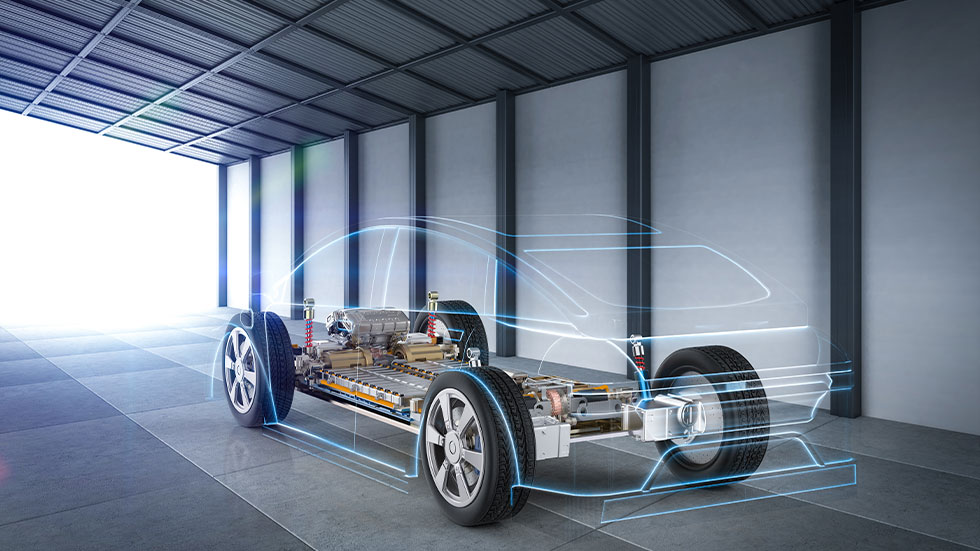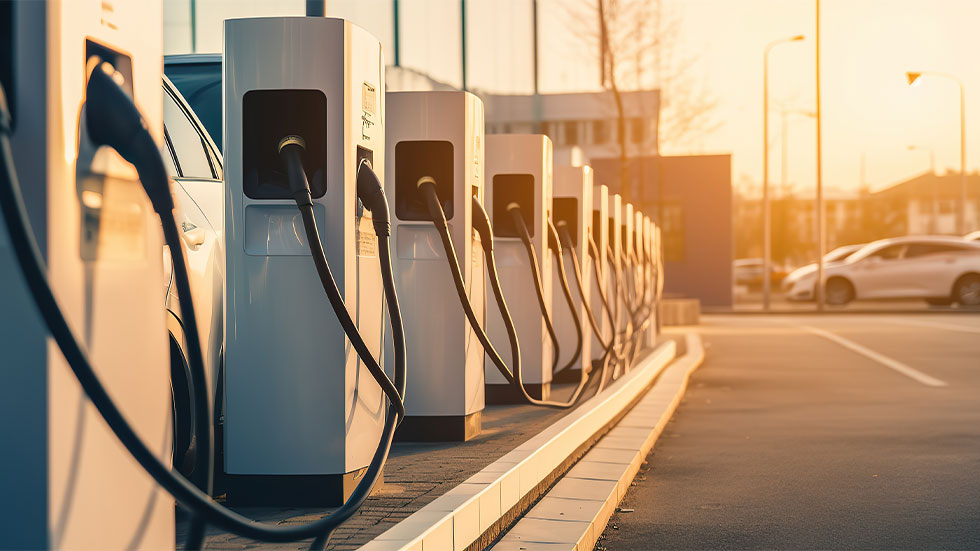Sustainable Mobility: With Electric Vehicles the Future is Now
Are electric vehicles more energy efficient? Learn the latest on electric vehicles and sustainability

As we strive to protect our environment for future generations, sustainability tops the most pressing concerns today. Within this scope, mobility plays a critical role. A meaningful answer to this challenge resides in transitioning to electric vehicles (EVs), offering numerous benefits for both our planet and us.
ELECTRIC VEHICLES AND ENVIRONMENTAL SUSTAINABILITY
Electric vehicles have gained traction over the past decade and are poised to redefine transportation in a way that drastically reduces our carbon footprint.
For starters, EVs do not produce tailpipe emissions, which contribute to both air pollution and global warming. Zero emissions from EVs thus translates to cleaner air and reduced greenhouse gas emission, promoting healthier living spaces and helping to combat climate change.
Moreover, EVs operate on electricity, a sustainable energy source that can be generated from various renewable resources like solar power, wind energy, and hydropower. This kind of renewable sourcing makes electric vehicles innately more sustainable compared to vehicles running on finite fossil fuels.

ARE ELECTRIC VEHICLES MORE ENERGY EFFICIENT?
Electric vehicles offer remarkable energy efficiency. Roughly 17 – 21% of the energy in gasoline is converted into power in conventional vehicles, while electric vehicles convert 59 – 62% of the electrical energy from the grid to power the wheels. This exceptional efficiency results in less spent for more miles traveled, saving car owners considerably in fuel costs.
EVs also boast of easier and less frequent maintenance. With fewer moving parts than conventional vehicles, electric cars are less likely to suffer from wear and tear, saving both time and money on services and repairs.
Yet, worthwhile as the benefits are, transitioning to electric vehicles does carry its weight of challenges. Key among these are the initial high costs of EVs, concerns about battery performance and lifespan, and the need for robust charging infrastructure.
That said, the obstacles are not insurmountable. Over the years, the prices of EVs have steadily declined. Government incentives and subsidies for EVs further ease the financial burden, making them increasingly accessible. Progress in battery technology continues to extend ranges for longer and more reliable drives. Existing services, such as roadside assistance, have also evolved to include services for electric vehicles, providing a valuable safety net for EV owners.

ELECTRIC VEHICLE CHARGING NETWORKS
On the infrastructure front, cities worldwide are ramping up efforts to build more robust EV charging networks. Many businesses are stepping up to the plate and installing charging stations at their premises, further encouraging the adoption of electric vehicles.
Transitioning to electric vehicles may be a viable solution toward sustainable mobility and perhaps a critical step on our journey toward a greener planet.
